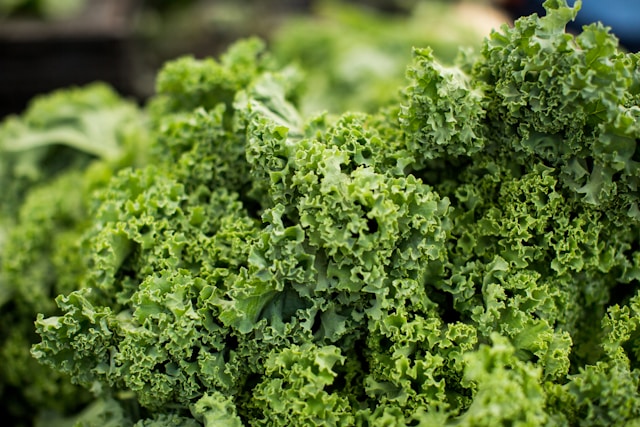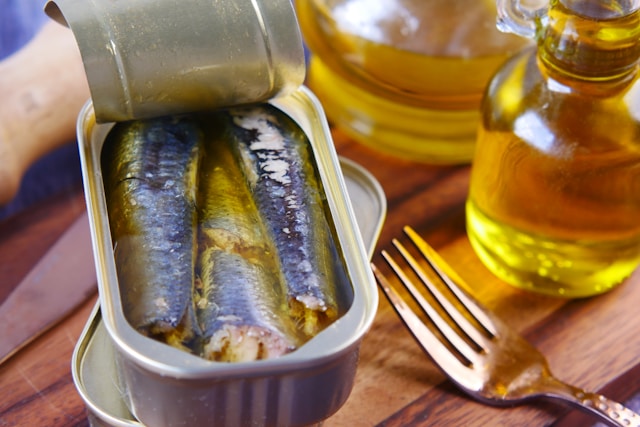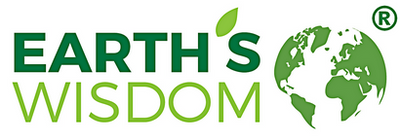COVID-19 Recovery Diet: Tips For Recovering From Coronavirus
February 15, 2022
COVID-19 has affected more than 267 million people. It has also killed around 5.3 million. While the disease poses a risk to the livelihood and lifestyle of many, it is the economy that suffers most. During the initial days when the outbreak was spreading at an alarming rate, people could not go to work, and many families suffered.
Also, there is the issue of quarantine and isolation as doctors try to manage the condition and help patients live through it. While there are various vaccines against COVID-19, some people have already contracted the virus before receiving their shot. It is worthwhile to note that there is no cure for the disease. People have to rely on a COVID-19 recovery diet to help the body fight off the virus.
COVID-19 recovery diet is essential for people who have contracted the disease and are in the recovery phase. The diet should help the person to regain lost weight and strength. It is also necessary for people in close contact with someone who has contracted the disease, like family members and healthcare providers, to follow some dietary guidelines.
For instance, they must eat foods rich in protein and have low salt content. They should also avoid processed foods, sugar-rich food items, caffeine, alcohol, and highly spiced dishes. Regular exercise will also help them build immunity.
This article covers the various ways you can employ diet to alleviate the effects of COVID-19 on your health. Use it when battling the disease to help you cope with it better. It is possible to recover from Coronavirus disease. However, studies are yet to establish if a person can contract the disease after recovering. If you would like to refer, people can get reinfected after recovery from various viruses.
Why Recovery Diets?
When infected by Coronavirus and other types of viruses, the body's immune system is severely compromised. That means that you are likely to fall ill and have other health complications if not managed well. A COVID-19 recovery diet and a quality immune boosting supplement such as Immune Shield are paramount to helping the body fight against the virus. It should also help you recover lost weight and strength.
Doctors recommend a COVID-19 recovery diet if you have contracted the virus. The diet should help improve your general health and wellbeing. The main goal of such diets is to help you build up the immune system. But various conditions like obesity can affect your recovery process and immunity build-up. That is why you must seek medical advice on the kind of diet that will work for you.
Recovery Diets for COVID-19
There are many types of COVID-19 recovery diets that you can follow. You must understand how to use them to improve your health and promote recovery.
Here are the tips you must follow to get the best out of a COVID-19 recovery diet.
- Consume Plenty of Fluids
One of the most important aspects of a COVID-19 recovery diet is to drink plenty of fluids. They help the body to flush out toxins and other harmful substances. Also, fluids help you maintain good health and boost your immunity.
Water is the most effective fluid as it flushes out toxins from all body parts. You should drink at least eight glasses of water every day. If you find it difficult to drink plain water, you can add a slice of lemon or cucumber to make it more refreshing.
Fruit juices and vegetable soups are also good sources of fluids. However, you must avoid drinking too much fruit juice. The sugar content of these juices may disturb your blood glucose levels and upset the COVID-19 recovery diet you are following.
You can also drink herbal tea, a good source of fluids and antioxidants. It helps to soothe the throat and calm the mind. If struggling to drink enough fluids, consider using a rehydration drink that helps rehydrate children after diarrhea, vomiting, or fever. You can use them as part of your COVID-19 diet.
- Eat Plenty of Protein
Another necessary aspect of a COVID-19 recovery diet is to consume plenty of protein like lean meat, fish, chicken breast, or turkey. It helps in the healing process and boosts the immune system. You can also eat eggs as part of your COVID-19 diet.
Plant-based proteins are also beneficial during the recovery phase. They can help in weight loss and in maintaining a healthy heart. Include legumes, nuts, and seeds in your diet. These foods are high in fiber and antioxidants.
There are many types of protein-rich foods to consider. You can try eating them in different combinations to make your COVID-19 diet more interesting. But you should not eat red meat or pork during this time. Such foods contain high levels of saturated fat and can increase the risk of heart disease and other health complications. These conditions increase the chances of death caused by Coronavirus.
- Avoid Overcooking Your Vegetables
Vegetables are a good source of fiber, vitamins, and minerals. You should include enough of them in your recovery diet. But avoid overcooking them. Overcooked vegetables can lose their nutritional value and become less digestible.
Healthily cook your vegetables to boost your COVID-19 diet. You can steam them, eat them raw, or grill them lightly so that the nutrients remain intact. If utilizing a pressure cooker, keep it on for only five minutes.
You can also eat lightly cooked vegetables like beans or broccoli during the COVID-19 recovery period. They are an ideal source of protein and fiber. Proteins help you repair injured cells, and the fiber in vegetables helps eliminate toxins from your body.
However, do not overcook beans as they can become toxic when cooked for too long. Also, avoid eating fried vegetables as they contain high amounts of unhealthy fats.
-
Moderate Your Oils and Fats Intake
It is vital to avoid taking too much oil and fats during the COVID-19 recovery phase. Avoid fried foods, deep-fried snacks, and other unhealthy fats. Excessive amounts of these foods can increase the risk of heart disease and other health complications.
Include healthy fats in your COVID-19 diet. The best sources are avocados, fish oil, and nuts. Omega-fatty acids in fish oil play a significant role in the health of your heart. They also help to reduce inflammation and promote proper brain function.
Nuts are rich in fiber and protein, which help to improve digestion and maintain a healthy heart. They also contain antioxidants that protect the heart from damage caused by free radicals.
You can also use olive oil or coconut oil for cooking. But use oils in moderation. Excessive amounts of these oils can increase the risk of heart disease and other health complications.
- Watch Your Sugar Intake
It is also imperative to moderate your sugar intake while recovering from COVID-19. Too much sugar can affect your health and increase the risk of several diseases. You must guard your wellbeing while on COVID-19 recovery.
Limit your food intake that contain added sugars like candies, chocolates, jams and jellies, and other such products. Also, avoid using artificial sweeteners as they can cause health problems like diabetes and cancer. You also need to avoid drinking sugary drinks like sodas and juices.
Include natural sources of sugar in your COVID-19 diet, like fruits, honey, and molasses. But eat them in moderation. Excessive sugar can also affect your health.
- Eat More Frequently
While battling COVID-19, you would experience weakness most of the time. You will need more energy supply to help your immunity fight the virus. To attain this, eat more frequently but in smaller quantities.
Eating meager meals at short intervals will help you digest your food properly. It will also help you get the energy you need to fight the virus. You can eat three meals and two snacks in a day. That will help you to get adequate nutrients and energy.
You can also drink plenty of fluids like water, tea, porridge, and soups. It will help you to fight the virus with greater ease. You should avoid drinking carbonated beverages like soda or aerated drinks. Instead, you can try a probiotic formula to boost energy levels and moods when you are sick.
- Cook Your Food at Home
You should cook your food at home as much as possible during the COVID-19 recovery phase. It will help you to avoid eating unhealthy foods. Restaurant foods contain too much oil and salt. That makes them harmful to your health during the recovery phase.
Moreover, restaurant foods are also high in calories, which can cause weight gain and other health complications. Cooking your food at home will help you avoid these problems. Other than that, you will have complete control over the food you eat.
You can start cooking your favorite foods once you feel better from COVID-19 symptoms. You can also ask your family to cook for you. As long as the food is healthy, anything that helps in boosting immunity will help.
If you must order food from restaurants, use delivery services or order from local cafes. At this stage, you should minimize your contact with other people. It is dangerous to get in touch with people while battling COVID-19. Eating out can lead to socializing or meeting many people, and it could pose you and others to more risks.
- Prioritize Fresh Foods
When recovering from COVID-19, it is vital to prioritize fresh foods. These include fruits, vegetables, and other whole foods. Fresh foods are rich in nutrients and antioxidants that can help in boosting immunity.
Fresh foods also contain less toxic substances than processed foods. Preservatives and chemicals like sodium nitrates, potassium bromate, and others can be harmful. They can lead to health complications during COVID-19 recovery.
You can also include whole grains in your COVID-19 diet. These are a good source of fiber and other nutrients that help in boosting immunity. Whole grains also contain antioxidants like selenium, copper, and manganese.
- Consume More Fiber
Fiber is a crucial element of the diet that can help increase immunity and fight against COVID-19. Fiber-rich foods are a good source of antioxidants and nutrients that help in boosting immunity. You should consume more fiber while on COVID-19 recovery.
Fiber also assists in preventing issues like constipation and diarrhea. The recommended intake of fiber is about 25 grams per day. You can include high-fiber foods like fruits, vegetables, and whole grains in your diet. You can also use natural fiber supplements like psyllium husk.
But make sure to consult your doctor before including supplements in your diet. They may interfere with other medications you are taking. Fiber supplements may also cause side effects like gas and bloating when you ignore the dosage.
- Cut Off Alcohol Consumption
Alcohol is a health hazard when you are on COVID-19 recovery. It can interfere with the absorption of nutrients, hamper your immunity, and worsen your symptoms. It can also make it difficult for you to recover from COVID-19 infections.
If at all, you must limit alcohol consumption to one or two servings in a week. You can drink wine, beer, and other low-alcohol drinks if you feel the need to drink. But make sure you avoid hard liquor and cocktails.
Ignore the notion that alcohol can kill the virus once in the body. The idea that alcohol can help in recovering from COVID-19 is a myth. Its consumption can delay your recovery and make you susceptible to other infections.
Conclusion
Coronavirus infections can cause you to fall ill and become unproductive. In some cases, the virus can make your body weak and deteriorate. You must follow a diet to improve your life while recovering. Once you have completed your COVID-19 diet, return to your healthy eating plan. It will help keep the virus away and improve your overall health.
The main goal of a COVID-19 recovery diet is to help you build up your immune system. But various conditions can affect how your body heals and recovers. So, it is necessary to seek medical advice on the best diet for you during this time. Finally, a COVID-19 recovery diet is an effective way to prevent the virus from recurring. You can also use it to improve immunity and prevent other health complications.
References:
http://www.emro.who.int/nutrition/news/nutrition-advice-for-adults-during-the-covid-19-outbreak.html
Leave a comment
Comments will be approved before showing up.
Also in Wisdom News

The Importance of Vitamin K2: Unlocking its Role in Health and Wellness
September 22, 2024

The Importance of Omega-3 Fatty Acids: A Comprehensive Review of Their Effects on the Body
August 02, 2024

The Benefits of Mindfulness Meditation for Mental Health
July 12, 2024
Disclaimer: These statements have not been evaluated by the FDA. These products are not intended to diagnose, treat, cure or prevent any disease.
© 2026 Earth's Wisdom®. All Rights Reserved.




